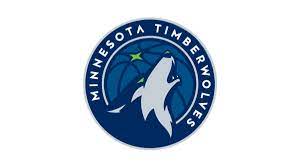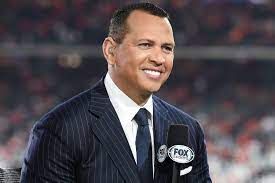By Martin J. Greenberg and Matthew Duffy 
The world of professional sports ownership has transformed into a lucrative and attractive form of investment, outperforming leading index funds in recent years.[1] This evolution is driven by diverse income sources and manageable expenses, which have resulted in substantial spending on sports broadcast rights.[2] With the global spending on sports broadcast rights nearly doubling between 2012 and 2018, reaching a staggering 50 billion dollars, projections anticipate this figure to grow to 85 billion in the next four years.[3]
Among the various investment opportunities, sports entities, particularly MLB franchises, have emerged as highly sought-after options. These franchises hold valuations that often exceed 2 billion dollars, making them attractive assets for investors seeking impressive returns.[4] The scarcity of sports franchises, coupled with competition-protected league concessions offering exclusive economic rights, has further fueled their desirability.[5] The Chicago Cubs were sold and purchased for 845M, Houston Astros for 610M, Boston Red Sox for 380M, and Philadelphia Phillies for 30M and now according to Forbes the teams are worth 4.1B, 2.25B, 4.8B, and 2.57B respectively.[6] This trend of large increases in valuations of teams from the time they were purchased is reflected across the league.
| Team | Sale Date[7] | Purchase Price[8] | Current Value[9] |
| Milwaukee Brewers | 2005 | $223M | $1.6B |
| Chicago Cubs | 2009 | $845M | $4.1B |
| Houston Astros | 2011 | $610M | $2.25B |
| Boston Red Sox | 2002 | $660M | $4.5B |
| Philadelphia Phillies | 1981 | $30M | $2.575B |
| New York Mets | 2020 | $2.75B | $2.9B |


The popularity of MLB as one of the most prominent sports leagues in the US has contributed significantly to its increase in ownership valuations.[10] With the top teams reaping the majority of interest and revenue, the league remains a magnet for investors.[11]
 To capitalize on the rising valuations of MLB franchises, private equity funds have seized the opportunity by acquiring minority stakes in teams.[12] This strategic approach has opened up the ownership landscape, enabling institutional investors to participate in the potentially lucrative sports market and expand their sports portfolios.[13] Owning a stake in an MLB team not only guarantees a share of the league’s growing revenue but also provides access to the appreciated value of the team.[14] However, the soaring franchise valuations have priced out all but the world’s wealthiest individuals from the bidding process, limiting ownership to a select few.[15] Private equity investment may be a solution to this roadblock for many.
To capitalize on the rising valuations of MLB franchises, private equity funds have seized the opportunity by acquiring minority stakes in teams.[12] This strategic approach has opened up the ownership landscape, enabling institutional investors to participate in the potentially lucrative sports market and expand their sports portfolios.[13] Owning a stake in an MLB team not only guarantees a share of the league’s growing revenue but also provides access to the appreciated value of the team.[14] However, the soaring franchise valuations have priced out all but the world’s wealthiest individuals from the bidding process, limiting ownership to a select few.[15] Private equity investment may be a solution to this roadblock for many.
 The dynamic world of professional sports brings forth discussions on sports team debt limitations.[16] Teams are not allowed to hold debt more than eight times operating income, or twelve times for teams with new stadiums.[17] For cash-strapped franchises and leagues, infusions of capital are welcomed, providing much-needed financial stability.[18] To address this, the sale of non-controlling stakes in sports franchises has emerged as a viable solution.[19] Existing owners can access liquidity and capitalize on the unrealized appreciation of their investments while retaining control over crucial management decisions.[20] This approach allows teams to enhance their infrastructure, invest in state-of-the-art training facilities, or develop hotels in proximity to the stadium, benefiting both the team and the fan experience.[21]
The dynamic world of professional sports brings forth discussions on sports team debt limitations.[16] Teams are not allowed to hold debt more than eight times operating income, or twelve times for teams with new stadiums.[17] For cash-strapped franchises and leagues, infusions of capital are welcomed, providing much-needed financial stability.[18] To address this, the sale of non-controlling stakes in sports franchises has emerged as a viable solution.[19] Existing owners can access liquidity and capitalize on the unrealized appreciation of their investments while retaining control over crucial management decisions.[20] This approach allows teams to enhance their infrastructure, invest in state-of-the-art training facilities, or develop hotels in proximity to the stadium, benefiting both the team and the fan experience.[21]
Moreover, offering partial ownership stakes to strategic investors serves as a means for team owners to secure funds for expansion endeavors.[22] The modern sports landscape demands innovative stadium renovations, improved facilities, and fan experiences to stay competitive. Roughly 51% of arenas within the NBA, NFL, and MLB were established prior to the year 2000.[23] As a result, a considerable number of upgrades or recently constructed facilities are about to come into view. An example of funds required for such projects can be seen in Globe Life Field. The project’s price tag was around $1.2 billion. Within the framework of the public-private partnership’s master agreement, a 50/50 division of costs was stipulated between the Texas Rangers and the City of Arlington.[24] The City’s financial commitment was limited to $500 million.[25] Partial ownership investment provides additional resources that can be channeled into these expansion projects, creating a positive cycle of growth and improvement.
 The entry of private equity into the realm of sports ownership marks a significant trend in the industry. Major League Baseball and other North American sports leagues have adjusted their regulations to accommodate investors’ interest in acquiring minority stakes in multiple teams.[26] Major League Rules, Rule 20(a), Conflicting Interests, states
The entry of private equity into the realm of sports ownership marks a significant trend in the industry. Major League Baseball and other North American sports leagues have adjusted their regulations to accommodate investors’ interest in acquiring minority stakes in multiple teams.[26] Major League Rules, Rule 20(a), Conflicting Interests, states
(a) Ownership and Financial Interests. No Major League Club, or owner, stockholder, officer, director or employee (including manager or player) of a Major League Club, shall, directly or indirectly, own stock or any other proprietary interest or have any financial interest in any other Major League Club, other than:
- on a transitional basis as approved by the Commissioner in connection with the acquisition by a Major League Club owner or stockholder of an interest in another Major League Club;
- a Major League Club owner or stockholder that is an investment vehicle that owns less than a 15% passive, non-controlling interest in each Major League Club in which it owns an interest;
- a direct or indirect owner of any investment vehicle referenced in clause (ii) above; or
as a result of the ownership by Major Leage Club owner, stockholder, officer, director or employee of either (x) less than 5% interest in the stock of a diversified publicly-traded company one of the assets of which is another Major League Club or (y) a less than 5% limited partnership or other non-managing interest (unless otherwise permitted by clause (ii) or (iii) above) in a diversified investment vehicle that owns an interest in another Major League Club, subject in all events to the Commissioner’s determination as to whether owning or having such an interest in more than one Club in its League would or would not be in the best interests of Baseball. The rules governing whether a Minor League Club or owner, stockholder, officer, director or employee (including manager or player) of a stockholder, officer, director or employee (including manager or player) of a Minor League Club can own stock or any other proprietary interest or have any financial interest in any other Minor League Club are set forth in the Minor League Guidelines. [27]
Fox Business has indicated that
[t]he entry of private equity would mark a noticeable shift in an MLB ownership structure traditionally dominated by wealthy individuals or well-known public companies. The rule change would also provide a way for current owners, especially those looking to cash out their minority stakes, to capitalize on soaring MLB team valuations, many of which currently exceed $2 billion.[28]
“Sports banking firm Galatioto Sports Partners is a prospective participant, sources said, on MLB’s rule change, which was first reported by Bloomberg.”[29] “The firm has purportedly established a $500 million fund to invest in MLB franchises.”[30]
 The NBA has similar limits on minority ownership. According to a report by Front Office Sports:
The NBA has similar limits on minority ownership. According to a report by Front Office Sports:
Minority ownership is often seen as more about prestige than power. You don’t have a lot of, if any, say in how the team is run and few teams pay dividends to their minority investors. The same applies to private equity firms purchasing a stake in a team, which is limited to 20% in any one NBA franchise. [31]
‘The beauty of sports and the way the hierarchy works is that your team has to have a controlling owner who has 100% authority,’ [Ted] Leonsis said. ‘What the leagues have done with the private equity firms was to create rules of the road on how much you can own. You can’t come to board meetings. You’re essentially a passive investor.’[32]
According to Pitchbook, since 2002, all four of the major U.S. sports leagues have performed better than the S&P 500, and in some cases by a very wide margin. Here are the leagues’ respective returns over the past 20 years:
NBA: 1057%
MLB: 669%
NFL: 558%
NHL: 467%
S&P 500: 458%[33]
The NBA has limitations on private equity investment too. No team can have more than 30% total of private equity ownership and an institutional investor can invest in up to five NBA teams.[34] However, strict regulations imposed by leagues require minority investors to maintain a hands-off approach.[35] As a result, this shift towards private equity ownership raises legal implications, particularly concerning federal antitrust laws.[36]
If sports leagues increasingly adopt private equity models, the courts’ perspective on professional sports leagues in relation to antitrust regulations could undergo a fundamental transformation.[37] Younger leagues like Major League Soccer (MLS) and their less valuable franchises may face heightened antitrust scrutiny as private equity acquisitions potentially reshape the treatment of parent leagues under these laws.[38]
Factors such as the convergence of sports professionals entering agreements with fund managers, easing of ownership restrictions, the need for capital to offset pandemic-induced losses, and the growing allure of sports as an investment opportunity have all contributed to a favorable climate for private equity investments in franchises.[39]


Big name individuals such as Alex Rodriguez who made a prosperous acquisition of the Minnesota Timberwolves franchise has captured the attention of major private equity firms and institutional investors.[40] These entities are actively approaching him with the intention of establishing substantial private equity funds aimed at investing in the wider realms of sports and real estate.[41] Among the private equity firms making a mark in sports ownership, Arctos Sports Partners stands out as a dominant player.[42] Focusing solely on acquiring stakes in sports franchises, Arctos leverages its expertise from private equity and sports backgrounds.[43] With a strong foundation for executing deals and navigating league regulations, Arctos holds minority stakes in several prominent MLB teams.[44] Their strategic approach to investing and deep knowledge of the sports industry continue to shape the future of sports ownership, making a lasting impact on the world of sports finance.[45]
 Arctos Sports Partners’ primary strategy involves acquiring minority stakes in professional sports teams, a venture that has proved lucrative.[46] By holding minority stakes in teams like the Boston Red Sox, Los Angeles Dodgers, Chicago Cubs, San Francisco Giants, San Diego Padres, and Houston Astros, Arctos has solidified its position as a leader in the industry.[47] This approach enables Arctos to capitalize on the appreciation of sports franchises, which often outperform stocks and provide attractive returns to investors.[48] Arctos has reported assets of 6.6B resulting in a 60% increase on the year.[49]
Arctos Sports Partners’ primary strategy involves acquiring minority stakes in professional sports teams, a venture that has proved lucrative.[46] By holding minority stakes in teams like the Boston Red Sox, Los Angeles Dodgers, Chicago Cubs, San Francisco Giants, San Diego Padres, and Houston Astros, Arctos has solidified its position as a leader in the industry.[47] This approach enables Arctos to capitalize on the appreciation of sports franchises, which often outperform stocks and provide attractive returns to investors.[48] Arctos has reported assets of 6.6B resulting in a 60% increase on the year.[49]
The realm of professional sports ownership has evolved into a lucrative and competitive market, offering investors compelling returns and diversification. Private equity’s involvement, as exemplified by prominent firms like Arctos Sports Partners, has reshaped the landscape, allowing institutional investors to participate in a once-exclusive arena.[50] As the sports business landscape continues to evolve, private equity’s role will undoubtedly play a pivotal part in shaping the future of sports ownership, affecting both the investors’ returns and the industry’s dynamics as a whole.
Originally from Green Bay, Wisconsin with a love of golf and all Wisconsin sports teams, Matthew G. Duffy is a law student at Marquette University Law School on track to earn a Juris Doctor degree and a Sports Law Certificate from the National Sports Law Institute by May 2025. Duffy earned a bachelor’s degree in economics from the University of Wisconsin-Madison. He interned at the Milwaukee County District Attorney’s Office in 2023 gaining skills in advocacy, legal research, and securing favorable outcomes in various legal proceedings. Further enriching his experience, Duffy has a past career in finance and administration at U.S. Bank. Beyond professional roles, he actively contributes to the legal community as a member of the Marquette Sports Law Review and a Law School Mentor, having a commitment to both legal education and the development of future legal professionals. In sum, Duffy’s combination of a diverse educational background, practical legal experience, and a passion for the sports industry provides him with a unique perspective on the field of sports law and sports management.
[1] Gregory A. Marino, A New Game in Town: The Rise of Private Equity and Institutional Investment in Sports, Foley & Lardner LLP, (November 11, 2020), https://www.foley.com/en/insights/publications/2020/11/private-equity-institutional-investment-sports.
[2] Id.
[3] Id.
[4] Michael Long, Private equity in the major leagues: Is the old boys’ club opening up?, SP, (January 28, 2020), https://www.sportspromedia.com/from-the-magazine/nfl-nba-mlb-ownership-minority-venture-capital/?zephr_sso_ott=pd6Atx.
[5] Sports Are Real Assets: The Case for Inclusion, Arctos Insights, (October 2022), https://www.arctospartners.com/insights/sports-are-real-assets/.
[6] Mike Ozanian & Justin Teitelbaum, Baseball’s Most Valuable Teams 2023: Price Tags Are Up 12% Despite Regional TV Woes, Forbes, (March 23, 2023), https://www.forbes.com/sites/mikeozanian/2023/03/23/baseballs-most-valuable-teams-2023-price-tags-are-up-12-despite-regional-tv-woes/?sh=58db97486501.
[7] Peter Elliott, Every MLB team’s purchase price (and value today), AFootintheBox.com, (Aug. 12, 2017), http://www.afootinthebox.com/peter/every-mlb-teams-purchase-price-and-value-today.
[8] Id.
[9] Ozanian & Teitelbaum, supra note 6..
[10] John Gabbert, Sports Teams and Private Equity Pair Up, Pitchbook, (May 13, 2021), https://pitchbook.com/news/reports/q2-2021-pitchbook-analyst-note-sports-teams-and-private-equity-pair-up.
[11] Id.
[12] Long, supra note 4.
[13] Chase Brown, A New Kind of Pitch: The Rise of Sports Dedicated Private Equity Funds and the Future of the Single Entity Defense, 28 Jeffery S. Moorad Sports L.J. 335 (2021), https://digitalcommons.law.villanova.edu/mslj/vol28/iss2/3; Ed Dixon, Report: Arctos ups MLB team minority stakes to six, SP, (March 16, 2022), https://www.sportspromedia.com/news/mlb-arctos-dodgers-cubs-giants-padres-astros-red-sox-investment-private-equity/#:~:text=The%20sports%20business%20outlet%20reports,Astros%20and%20Boston%20Red%20Sox.
[14] Brown, supra note 13.; Bill Shaikin, Private equity firms invest in MLB teams because revenue is plentiful, Los Angeles Times, (March 15, 2020), https://www.latimes.com/sports/dodgers/story/2022-03-14/private-equity-firms-invest-in-mlb-teams-because-revenue-is-plentiful#:~:text=Private%20equity%20firms%20invest%20in%20MLB%20teams%20because%20revenue%20is,go%20far%20beyond%20selling%20tickets.&text=For%20%24300%2C%20the%20Dodgers%20will,special%20kind%20of%20season%20ticket.
[15] Scott Soshnick & Brendan Coffey, Arctos Sports Partners Raises $1.1 Billion for Second Investment Fund, Sportico, (May 5, 2022), https://www.sportico.com/business/finance/2022/arctos-sports-launches-second-fund-1234674530/; Thomas Barrabi, MLB ownership rule change puts private equity in scoring position, FOX Buisiness, (November 29, 2019), https://www.foxbusiness.com/sports/mlb-ownership-rule-change-private-equity.
[16] Long, supra note 4.
[17] Mike Ozanian, Wilpons Could Get Help In Sale Of Mets From Increase In MLB Debt, Forbes, (May 1, 2020), https://www.forbes.com/sites/mikeozanian/2020/05/01/wilpons-could-get-help-in-sale-of-mets-from-increase-in-mlb-debt/?sh=36d718472e9c.
[18] Marino, supra note 1.
[19] Id.
[20] Id.
[21] Gabbert, supra note 10.
[22] Id.
[23] Martin J. Greenberg, Sports Facility Renovation Boom & A Lawyer’s Ethical Responsibilities, The Law Office of Martin J. Greenberg LLC, (June 23, 2023), https://greenberglawoffice.com/sports-facility-renovation-boom-a-lawyers-ethical-responsibilities/.
[24] Id.
[25] Id.
[26] Brown, supra note 13.
[27] THE OFFICIAL PROFESSIONAL BASEBALL RULES BOOK (2021).
[28] Thomas Barrabi, MLB ownership rule change puts private equity in scoring position, FOX Business, (November 29, 2019), https://www.foxbusiness.com/sports/mlb-ownership-rule-change-private-equity
[29] Id.
[30] Id.
[31] A.J. Perez, Why Sports Teams Welcome Private Equity Ownership, FRONT OFFICE SPORTS, (January, 29, 2022), https://frontofficesports.com/why-sports-teams-are-welcoming-private-equity-ownership/.
[32] Id.
[33] Id.
[34] Id.
[35] Gabbert, supra note 10.
[36] Brown, supra note 13.
[37] Id.
[38] Id.
[39] Id.
[40] Lydia Moynihan & Josh Kosman, Alex Rodriguez aims to raise sports-focused buyout fund worth ‘billions’, New York Post, (May 11, 2023), https://nypost.com/2023/05/11/a-rod-aims-to-raise-sports-focused-buyout-fund-worth-billions/.
[41] Id.
[42] Gabbert, supra note 10.
[43] Id.
[44] Dixon, supra note 13.
[45] Gabbert, supra note 10.
[46] Soshnick & Coffey, supra note 15.
[47] Dixon, supra note 13.
[48] Soshnick & Coffey, supra note 15.
[49] Brendan Coffey, ARCTOS SPORTS REPORTS $6.6 BILLION IN ASSETS, UP 69% ON YEAR, Sportico, (May 2, 2023), https://www.sportico.com/business/finance/2023/arctos-sports-assets-increase-1234721310/.
[50] Gabbert, supra note 10.


